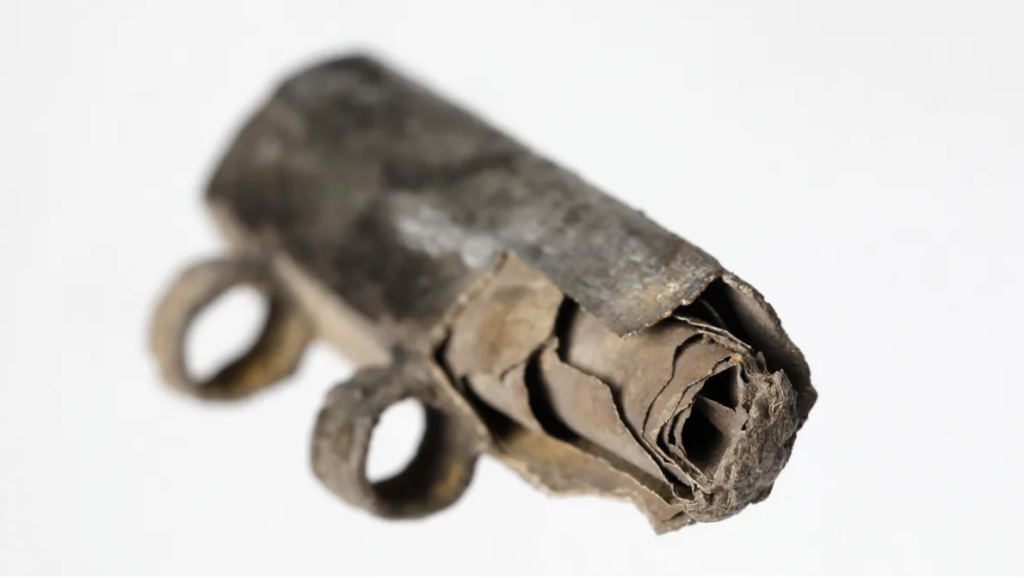The 3.5 cm artifact was located beneath the man’s chin.
Others are reading now
Christianity, now one of the world’s most widespread religions, began as a small and often persecuted faith in the Roman Empire.
Early Christians lived in secrecy, creating hidden symbols and practices to express their beliefs. Over time, the faith spread across the Mediterranean and beyond, adapting to local cultures and languages.
Traces of this early history continue to emerge, offering scholars a deeper understanding of how Christianity took root in different parts of the world.
Also read
May push back the timeline of Christianity
In Frankfurt, Germany, archaeologists discovered a silver amulet from between 230 and 270 AD, marking the earliest known evidence of Christianity north of the Alps.
Found in the grave of a man, the amulet contained a thin sheet of silver inscribed with a Latin text referencing Jesus Christ and Christian faith.
The 3.5 cm artifact was located beneath the man’s chin, suggesting it was worn as a necklace.
The inscription, unique for its Latin text rather than the more common Greek or Hebrew, includes phrases such as “In the name of Jesus Christ, Son of God” and “Every knee shall bow.”
Researchers believe the amulet was both a protective object and a declaration of faith, according to WP.
According to experts at the Leibniz Center for Archaeology, such Christian artifacts were more common in the eastern Mediterranean but rare in the western Roman Empire.
The amulet shows how Christian ideas reached far beyond their initial centers in places like Judea, Alexandria, and Rome.
Its distinctively Christian message, with no references to other religions, sets it apart from other religious amulets of the time.
A 3D model of the artifact allowed researchers to study its inscription and reveal its full historical significance.
This discovery not only confirms the presence of Christians in the region much earlier than previously thought but also suggests they practiced their faith discreetly to avoid persecution.
Frankfurt’s mayor, Mike Josef, hailed the find as a groundbreaking moment for understanding the history of Christianity in Europe.
The amulet’s inscription may push back the timeline of Christianity in the region by 50 to 100 years, offering a rare glimpse into the early lives of believers in this northern part of the Roman Empire.


